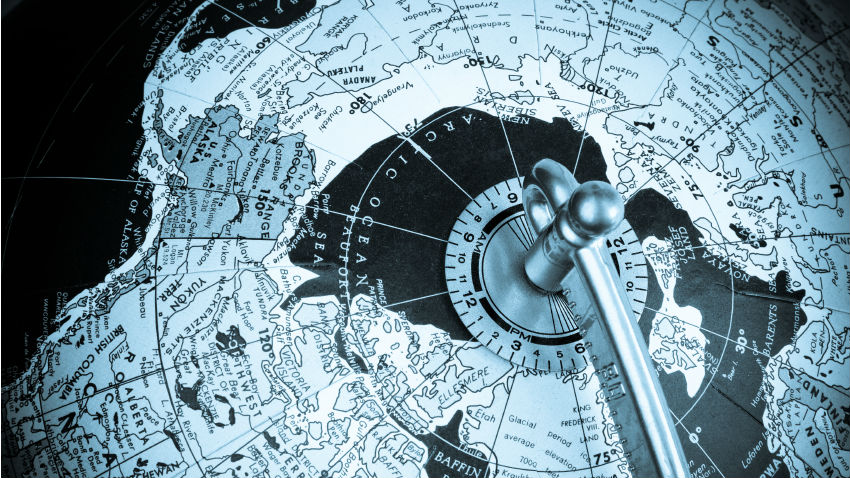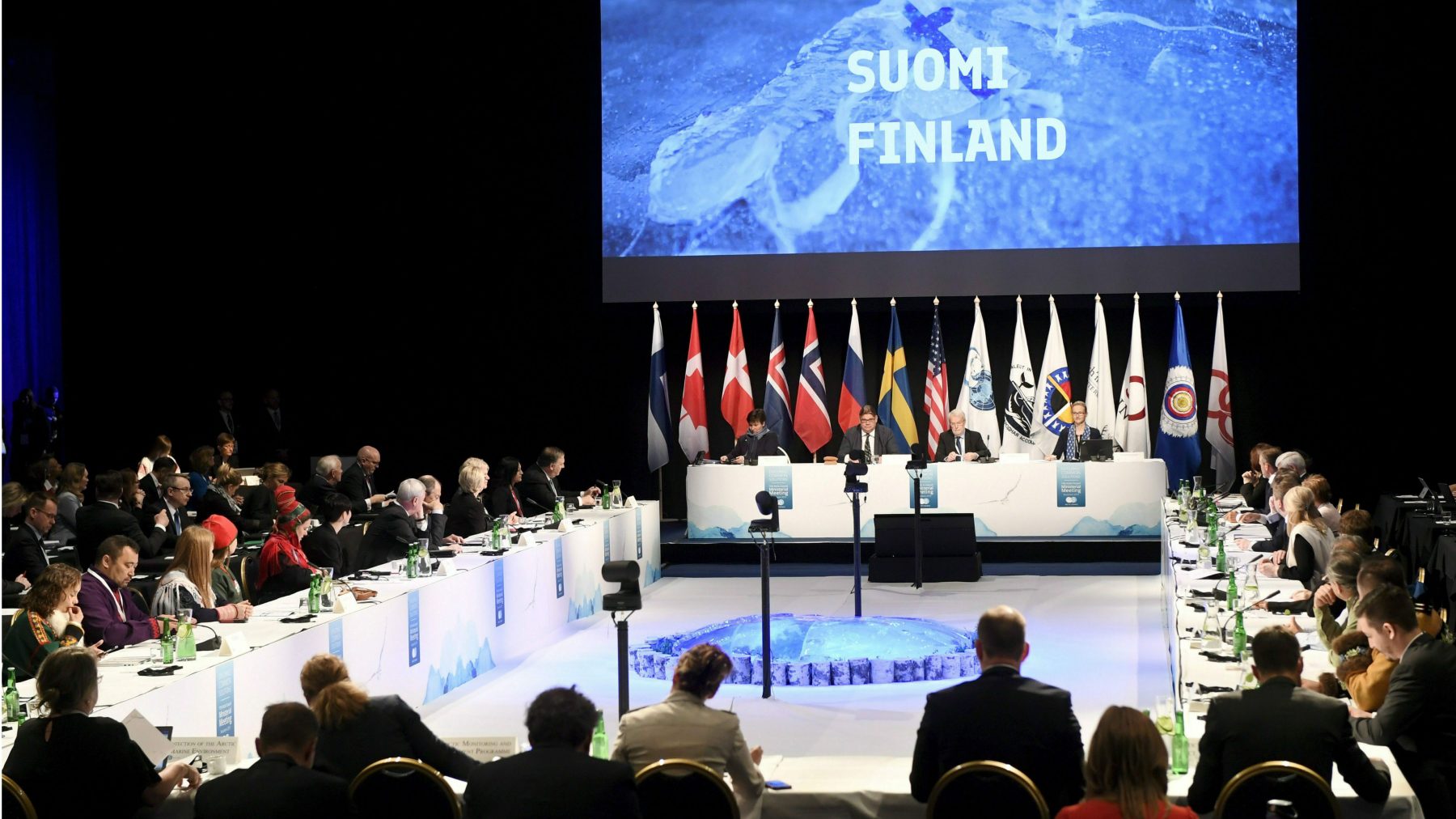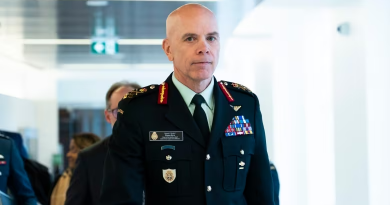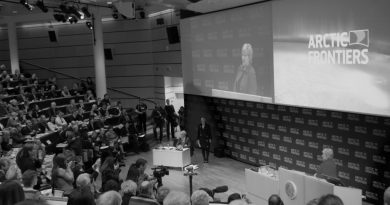Warming climate puts bonds between Arctic nations to the test

In the end, the eight nations of the Arctic Council signed a short statement, affirming their commitment to peace and cooperation. But two major issues loomed over the Arctic Council meeting in Finland this week, and they pull at the seams of Arctic unity.
Arctic Council meetings have always ended with a long declaration. The one signed in Fairbanks, Alaska in 2017 had 46 points, acknowledging shared values, goals and concerns. But this year the countries couldn’t reach a unanimous agreement on a declaration. The holdout was the United States.
“The Trump administration shares your deep commitment on environmental stewardship,” U.S. Secretary of State Mike Pompeo told the Council.
But, according to multiple news outlets, Pompeo couldn’t accept what the draft declaration said about climate change. The document wasn’t made public, though you can get a good idea by reading the Finnish minister’s statement. He said most of the countries agreed climate change is a fundamental challenge for the Arctic and affirmed the work of the Paris agreement to cut greenhouse gas emissions.
Pompeo, in a speech to the Arctic Council, dismissed the value of “collective goals.”
“They’re rendered meaningless, even counterproductive, as soon as one nation fails to comply,” he said.

Sen. Lisa Murkowski (R-AK) spoke to reporters in Washington Thursday, after returning from the Arctic Council meeting.
“I don’t think it’s any great state secret that the crux of the impasse was how much of the declaration would reference climate change specifically,” she said.
At least, Murkowski says, the countries signed a short statement. It was a one-pager listing broad goals.
“It was not the declaration, I think, that many of us had hoped, but that does not suggest that there was not extraordinary work that went into that,” she said.
The warming climate and shrinking sea ice are clearly transforming the Arctic, Murkowski said, opening it to new competitors and making the work of the council more challenging.
“The reality is, things are changing and they are changing in a dynamic way and some would say in an aggressive way, in terms of timing,” she said. “It’s moving very quickly.”
National security also a hot topic

Besides climate change, the other issue looming over this meeting was national security. The Arctic Council purposely excludes security and defense from its mission. But Sec. Pompeo raised it in Finland with a speech suggesting Russia and China’s increased activity in the Arctic could pose a threat.
Murkowski says it may be time for the Arctic Council to expand its mission, but she likes the current focus, on things like food security, environment, education and search-and-rescue. As she often says, four million people live in the Arctic.
“And as soon as the conversation about national security comes in, it literally sucks the air out of the room for everything else,” Murkowski said.
After the Arctic Council meeting, Murkowski attended the Munich Security Conference in Helsinki for a discussion focused on Arctic security. She’ll be in Shanghai for a different Arctic conference, and at the end of the month, another Arctic trip with members of Congress.
May, Murkowski says, is all about the Arctic.
Related stories from around the North:
Canada: Premier in Arctic Canada to push Ottawa for more military and icebreakers in the North
Finland: The Arctic Council Ministerial could have been worse, Blog by Heather Exner-Pirot
Iceland: Environmental groups call for action on black carbon pollution, Eye on the Arctic
Norway: Temperatures on Svalbard have been above normal for 100 straight months, The Independent Barents Observer
Russia: Russia, China step up talks over Arctic shipping, The Independent Barents Observer
Sweden: Nordic leaders stand united as they sit with Putin in Russia, The Independent Barents Observer
United States: Inuit from Alaska, Canada, Greenland & Russia condemn U.S. torpedoing of Arctic Council declaration, Eye on the Arctic



